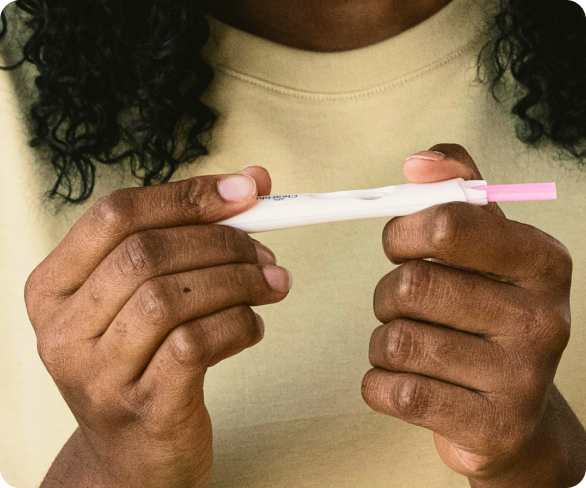
Unexplained infertility is a diagnosis made where a pregnancy does not result after a period of time in which there is regular sexual intercourse, and no pathology has been discovered after thorough investigation of hormone levels, ovulation, sperm quality, and the health of the reproductive organs.

Unexplained infertility is relatively common, affecting about 30% of heterosexual couples who are struggling to conceive. While it can be frustrating not to have a specific diagnosis, it’s important to know that many couples facing unexplained infertility eventually do achieve pregnancy, whether through natural means or assisted reproductive technologies like IVF.
While unexplained infertility means no clear cause is identified after thorough evaluation, research suggests that subtle or undetectable factors may contribute.

Eggs may appear normal during testing but have chromosomal abnormalities or reduced ability to fertilise and develop into healthy embryos.
Despite normal semen analysis results, subtle defects in sperm motility, morphology, or DNA integrity may impair fertilisation.
Even with regular cycles, subtle hormonal imbalances can affect the release of eggs or the environment needed for fertilisation and implantation.
The fallopian tubes may be structurally open but have impaired function, such as reduced ability to transport the egg and sperm for fertilisation.
The uterine lining may not be optimally prepared for implantation due to hormonal or molecular factors.
Abnormal immune responses that could interfere with fertilisation or implantation.
Mild or undiagnosed endometriosis can cause inflammation and disrupt egg quality, sperm function, or embryo implantation without obvious symptoms.
Undetected genetic abnormalities in either partner may impact egg quality, sperm quality, or embryo development.
Subtle effects of stress, poor diet, smoking, or environmental toxins may influence fertility without producing clear clinical markers.
Even with regular intercourse, slight inconsistencies in timing or conditions affecting the sperm-egg interaction can hinder conception.
Unexplained infertility underscores the complexity of human reproduction, where multiple factors must align for successful conception. Advanced diagnostic techniques and tailored treatment plans, such as IVF or ICSI, can address these potential hidden issues and improve chances of conception.

To diagnose unexplained infertility, we need to rule out any potential causes. This usually starts with a thorough review of your medical history and a physical examination for both partners in a heterosexual couple: Blood tests to look at hormone levels, ultrasounds to assess the health of the ovaries and uterus, and semen analysis to evaluate sperm quality.
If you’ve been trying to conceive for over a year without success (or six months if you’re over 35) early intervention is important because fertility declines with age.
If you have irregular periods, known reproductive issues, or a history of miscarriage it’s equally as important to seek support early.
The treatment option chosen will depend on a number of factors:


For younger couples with good ovarian reserve and no significant time constraints, continuing natural attempts may be advised initially.
A tubal assessment using oil-based contrast (lipiodol) may enhance fertility by flushing the fallopian tubes, potentially improving the chances of conception.
Ovulation induction stimulates the ovaries to produce eggs, while IUI involves placing sperm directly into the uterus to increase the likelihood of fertilisation.
IVF bypasses potential unknown barriers by fertilising eggs in a lab and transferring embryos directly into the uterus, offering higher success rates for couples with prolonged infertility.
These minimally invasive surgical procedures allow for the detection and treatment of underlying conditions, such as endometriosis, which may not have been evident during initial investigations.
Adopting healthy lifestyle habits can significantly improve your chances of conceiving naturally. Start with a balanced diet rich in whole foods, such as fruits, vegetables, lean proteins, and healthy fats, while minimising processed foods and added sugars.
Regular exercise, such as moderate-intensity activities like walking or yoga, helps maintain a healthy weight and supports hormonal balance. Managing stress through mindfulness practices, meditation, or relaxation techniques can also positively impact reproductive health.
Additionally, avoid smoking, limit alcohol intake, and moderate caffeine consumption, as these factors can affect fertility. Prioritising sleep and ensuring adequate hydration are simple yet effective steps to enhance overall health and wellbeing, creating an optimal environment for conception.

Unexplained infertility can be one of the most frustrating diagnoses, leaving couples searching for answers and solutions. W ith his extensive expertise in fertility and second opinions, I offer a fresh perspective and advanced diagnostic approaches to uncover potential underlying causes.
Whether you’re exploring treatment options or seeking confirmation of your current care plan, I can provide you with personalised guidance to help you move forward with confidence.
Unexplained infertility is diagnosed when standard fertility tests show no clear reason for a couple’s difficulty conceiving.
Potential causes include subtle hormonal imbalances, egg quality issues, implantation problems, and undiagnosed endometriosis.
Doctors rule out known causes using blood tests, semen analysis, imaging studies, and ovulation tracking.
Treatments may include lifestyle modifications, ovulation induction, intrauterine insemination (IUI), or IVF.
Yes. IVF is a common and effective treatment when other interventions have failed.
Diet changes, acupuncture, stress reduction, and supplements may help optimize fertility, but medical treatments offer higher success rates.
Approximately 10–20% of infertility cases are classified as unexplained after thorough testing.